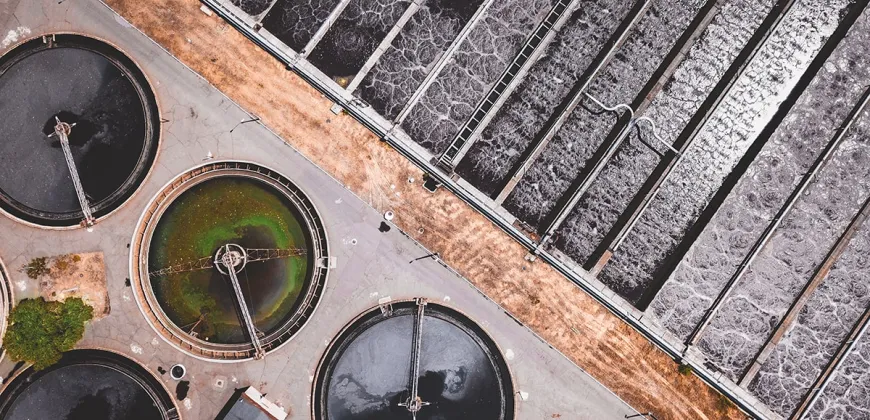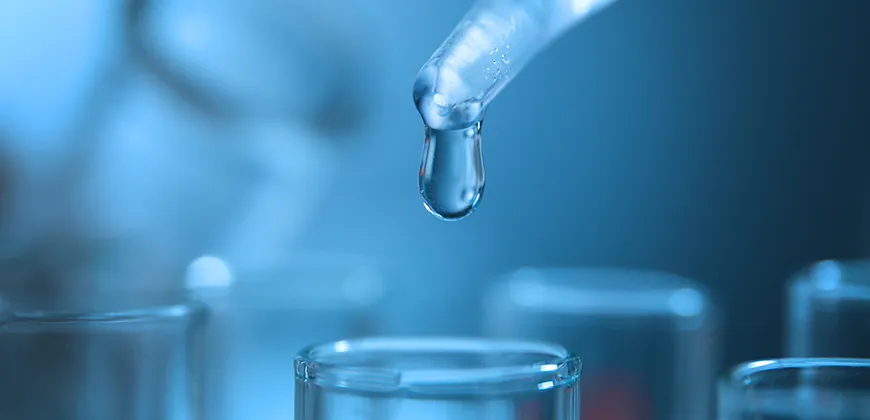Managing Scope For A Wastewater Treatment Plant Expansion Project
Improving scope management for wastewater treatment plant expansion project
MEL students reviewed scope management practices and proposed approaches for Metro Vancouver’s $2-billion investment to upgrade the Northwest Langley Wastewater Treatment Plant.

Large urban infrastructure projects are complex and expensive, often costing upwards of billions of dollars. Making sure that projects are delivered on budget and within scope requires exceptional project management skills – skills that students in the Master of Engineering Leadership (MEL) in Integrated Water Management Engineering (IWME) develop over the course of their program.
Navigating Complex Water Infrastructure Projects
In 2022, three IWME students worked on a water infrastructure capstone project taught by Dr. Cheryl Nelms with industry participation from Carollo Engineers, a water engineering company and the program manager for Metro Vancouver’s $2-billion investment to upgrade the Northwest Langley Wastewater Treatment Plant.
“Carollo asked us to examine existing project scope management practices and make recommendations on how to preserve cost savings, minimize scope creep, validate required changes and potentially avoid costly delays to overall project completion,” says Bryan Cadman, one of three students on the team, along with Abdollhossein Roshani and Binbin Li.
Enhancing Communication and Design Management
The group began by reviewing existing project documentation and procedures.
“Although the existing change management procedures were fine, they were not always being followed,” says Abdollhossein. “We found that the primary cause of cost escalation was undocumented design changes.”
Another issue, says Binbin, was “relying on informal communication” when updates were being made to the project.
The students also investigated industry best practices, finding that while a lot of research has been done on controlling for scope in the construction phase of a project, little research has been done on managing costs during the design phase.
Recommendations were made to improve the design management process to catch problems early on and avoid costs and delays. “So instead of monthly progress reports, increasing that to biweekly or weekly meetings that bring together stakeholders,” says Bryan. “It’s trying to find that balance between over-reporting and ensuring what is necessary for technical oversight.”
As Binbin adds, more rigorous communication practices could help minimize the risk of budget escalations.
The group proposed using different project management approaches to help minimize the risk of scope creep. “The Agile project management approach could be a useful strategy for reviewing change management processes,” says Abdollhossein.
“We also recommended introducing some key performance indicators to track changes in cost and schedule, including price deviation index, accumulated price deviation index, document submittal frequency index and a quantities deviation index.”
Preparing Future Leaders in Water Infrastructure Management
The students say the curriculum prepared them well to work on this water infrastructure capstone project. The capstone course material by Dr. Nelms was particularly helpful to focus the learning on managing large infrastructure projects, and the business and leadership courses taught through UBC Sauder’s Robert H. Lee Graduate School also gave them a solid foundation.
“This was not a technical project – we weren’t asked to advise on chemical and biological water treatment, for example – but was all about managing people and ideas,” explains Bryan. “In some ways, that’s harder as the technical side of things is often easier to predict and manage.”
The students met regularly with the client and delivered a presentation and submitted a well-received project report.
“I learned a great deal from this course and it was a great opportunity for me to get more involved in a real-world project in Metro Vancouver,” says Abdollhossein.
Binbin notes that the capstone project increased his familiarity with North American engineering practices while enabling him to examine “the issue of cost escalation, which is a universal problem in engineering projects.”
Bryan also found it to be a valuable experience: “We were able to explore a common challenge in large infrastructure projects, but with the perspective that comes when you have the time to step back and look at it holistically, rather than when you’re in the midst of the project and trying to meet upcoming deliverables,” he says.

